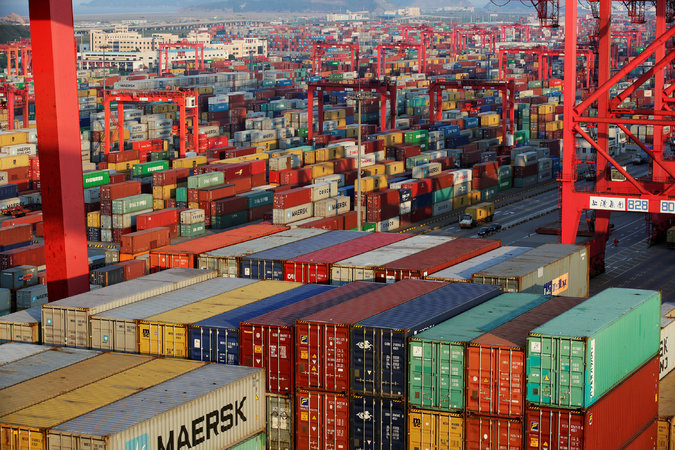That is a major concern for central banks, economists, investors and corporate executives around the world, as China has been a major engine of growth for decades. Their main question: What happens next?
Advertisement
Continue reading the main story
Below are three situations that are often discussed as the most likely outcomes of China’s predicament — and what each would mean for the rest of the world.
Financial Meltdown
China escaped the worst of the 2008 global financial crisis by starting a campaign of state-directed spending that created mountains of new debt. This helped cushion the blow of the fallout around the world. But critics argue that this only delayed China’s own day of reckoning.
China is still adding credit at a heady pace, and experts are starting to sound alarm bells. Under this situation, China risks its own version of the 2008 crisis that shook Wall Street and plunged the United States into recession and years of painfully slow growth. The rest of the world — which is still dealing with Europe’s woes — could follow.

Last month, the Bank for International Settlements published new data estimating that the gap between China’s outstanding credit and its long-term economic growth rate had widened to a record and was well above the historical level that indicates a financial crisis is likely.
Part of the problem lies in the rapid growth of what is known as shadow financing, like wealth management products, or other forms of nontraditional lending, which have been the focus of a number of prominent frauds. In a report this month, the International Monetary Fund warned that shadow loans average almost 300 percent of the capital buffers at China’s smaller banks.
The sharp rise in debt prompted one I.M.F. official to warn this month of the risk of a financial “calamity” emanating from China.
The good news is that few people actually think such a crisis is the most likely outcome.
“The risks of a financial crisis remain very low,” said Andy Rothman, an investment strategist at Matthews Asia, based in San Francisco.
Mr. Rothman and others point to China’s tight grip on its own financial system. It controls the country’s big banks as well as the big companies that borrow the most. It also limits how much money can leave its borders and keeps a firm grip on the value of its currency.
Advertisement
Continue reading the main story
The Good Times Return
So why can’t China just spend its way out of its slowdown?
Optimists point to China’s history of responding to economic challenges: the 2008 lending surge, an earlier bailout of the banking system and a painful restructuring of state-owned enterprises. This time, China could make progress with a plan to restructure debt while increasing spending on areas that could benefit its growing consumer class, like medical care and social services. That would be good news for a world economy looking for sparks.
The problem is that China’s debt burden is so much larger than ever before — both in absolute terms and compared with the economy.
At the same time, recent efforts to support growth by increasing state spending have met with another challenge: The government is getting less bang for its buck.
What’s more, private companies, put off by the lackluster economic outlook, have been pulling back on investment. State spending has helped keep growth rates on target so far this year, and a rebound in real estate investment has also helped, albeit at the risk of inflating a housing bubble.

“The resurgence of state investment has helped sustain growth in the short run, as has the modest rebound in property investment this year,” said Nicholas R. Lardy, an expert on China’s economy who is a senior fellow at the Peterson Institute for International Economics in Washington.
But he added, “The productivity of state investment is low, so it is a very inefficient way to sustain growth.”
Japan Comparisons
With China’s high debt, inability to spend and a lack of political will to make tough choices to fix its economy, economists are increasingly comparing it to another Asian powerhouse: Japan.
Like China now, Japan in the 1990s faced enormous bank debt, the bursting of a stock market bubble and overcapacity in a number of industries. Reluctant to make the sort of tough choices that result in shutting factories and killing companies, Japanese leaders tolerated years of economic stagnation instead. The result was called the Lost Decade, though many of Japan’s problems linger today.
Advertisement
Continue reading the main story
China is not Japan, of course, and its vast and upwardly mobile population stands in contrast to Japan’s wealthier but aging society. Still, a growing number of economists see the possibility of something similar.
“Just having a lot of debt, and bad debt, does not cause you to have a crisis,” said Arthur R. Kroeber, the managing director of Gavekal Dragonomics, an economic research firm in Beijing.
“But the price that you pay — if you don’t do the financial restructuring and real economy restructuring that is necessary to restore things to health — is that you get a very long period of very low growth and anemic activity,” he added.
That could also sideline one of the world’s most reliable engines of growth. It could also cause problems in China, where leaders have long pledged to provide jobs and opportunity to the millions who still leave their rural villages looking for a better life.
Still, that could be better than the alternative.
“This expansion of debt is way beyond anything we saw in Japan, both in terms of magnitude and time frame,” said Charlene Chu, a partner at Autonomous Research and a former China banking analyst at Fitch Ratings.
“I think a Japan outcome in many ways would be a best-case scenario for China.”
Continue reading the main story
Article source: http://www.nytimes.com/2016/10/19/business/international/china-economy-slows-impact.html?partner=rss&emc=rss
Speak Your Mind
You must be logged in to post a comment.